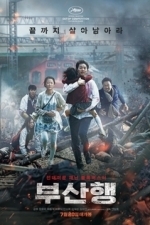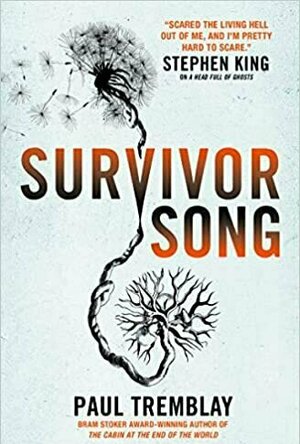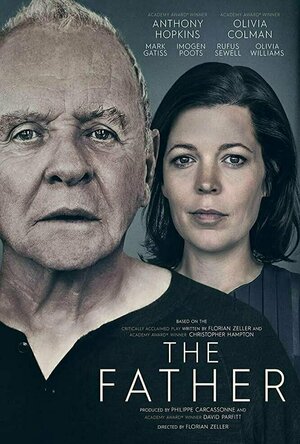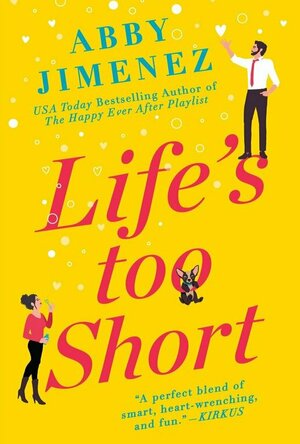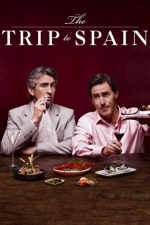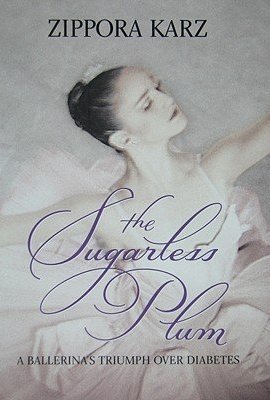
Heart Pro III - iPhone
Medical and Education
App
This app will not work on 3GS iPhones. 3D4Medical in collaboration with Stanford University School...
Charlie Cobra Reviews (1840 KP) rated Train to Busan (2016) in Movies
Jul 7, 2020 (Updated Oct 22, 2020)
Kristy H (1252 KP) rated Survivor Song in Books
Jul 9, 2020
A viral strain of rabies is spreading across Massachusetts. It moves quickly among animals and people, with those being bitten rapidly (think hours) losing their minds and then biting others to spread the disease. Hospitals are overwhelmed. People are under quarantine, with packets of vaccine being dropped from the sky to try to control the animal population. Chaos reigns. Dr. Ramola "Rams" Sherman is a pediatrician, about to be called in to help at an overflowing hospital. Before she can, she receives a terrified phone call from her best friend from college, Natalie. Eight months pregnant, Natalie watched an infected man brutally kill her husband--and received a bite while trying to save him. She must get to a hospital--and fast--to try to save herself and her unborn child. She and Rams begin a horrifying odyssey to get Natalie help, traversing a world filled with untold dangers.
"The presentation of symptoms with this new virus is astronomically fast compared to a normal rabies virus."
Okay, first of all, I rarely read horror books like this, but this novel was offered by my Scene of the Crime group, and I had heard such great things about Paul Tremblay. Second, I am trying to avoid pandemic-type reads and, yet, I found myself reading an incredibly pandemic, virus themed book!
However, I have to say, this was a good book! I can't say I enjoyed it, because it was so incredibly stressful that I think my heart-rate and blood pressure were through the roof while reading this thing. BUT, I could not put it down. Tremblay has created an utterly spellbinding book that also happens to be incredibly timely.
The tension in this book completely crackles. There's a virus spreading across the entire Northeast, but Tremblay focuses his action mainly on just Rams and Natalie. Somehow narrowing the story down on the survival of these two (and Natalie's baby) makes the story all the more terrifying and stressful. Their journey to get to a hospital is fraught with danger and blockages at every turn, and you can totally see this as unfolding a movie, with the "zombies" popping out around every corner. It still makes me shiver even now thinking about it.
While this book is creepy and scary, it makes some amazing (and very timely) points on society and its backward viewpoint toward vaccines, fear culture, xenophobia, and more. I found myself nodding furiously so many times. And, of course, it's filled with words that are so familiar to us now--who knew that CDC, PPE, and quarantine would be such commonplace terms?
Overall, while this is a very tense book and it might resonate a bit *too* much right now, it's very well-written. I flew through it--I'm not usually a horror fan, but it was a good balance of scary and humanizing. 4+ stars.
Bob Mann (459 KP) rated The Father (2020) in Movies
Jun 12, 2021
Positives:
- I was one of those disappointed that Chadwick Boseman didn’t posthumously win the Best Actor Oscar for “Ma Rainey’s Black Bottom”. But, boy oh boy, after seeing this I am fully supportive of the Academy’s position. Anthony Hopkins has delivered some astonishingly powerful performances during his career – from the tortured ventriloquist in “Magic”, to Hannibal Lector to the elderly pope in “The Two Popes”. But he really excels himself here, tapping both your emotions and your sympathies as the confused and terrified old man.
- The Oscar- and BAFTA-winning screenplay by Florian Zeller, based on his stage play, is devastating, subtly twisting the knife. It will be particularly telling/upsetting for those who are getting on in years and/or have/had elderly parents affected by dementia. I would personally not have included (being deliberately vague) the “Williams entry” scene in the trailer, since it is a jolt of a twist in the film. But there are so many other clever devices in the screenplay that you don’t see coming. The ending in particular is brutal on the emotions.
- The production design (an Oscar nomination for Peter Francis and Cathy Featherstone) is ingenious, as the set subtly and progressively transforms. Almost a ‘spot the difference’ in movie form.
- The score by Ludovico Einaudi uses atonal strings to great effect, as Anthony’s reality keeps shifting from under him.
Negatives:
- I’ve nothing here, hence my 10-bomb rating. I’ve seen some reviews that have thought that the movie was too “stagey” (which is a criticism I have levelled before at a bunch of “stage to screen” adaptations such as “Fences” and – more recently – “One Night in Miami” and “Ma Rainey’s Black Bottom“). But I really didn’t feel that way about “The Father”. The claustrophobic nature of the plot was well served I thought by the (largely) single set location.
Summary Thoughts on “The Father”: Dementia is a cruel and heartless disease that robs any affected elderly person of their memories, logic and – ultimately – their dignity. I thought the movie was extremely clever in reflecting this decline, anchored by the astonishing career-best performance from Sir Anthony Hopkins. But this in turns makes this a very hard watch indeed!
(For the full graphical review, check out the One Mann's Movies post here - https://bob-the-movie-man.com/2021/06/12/the-father-dementia-twists-the-strands-of-anthonys-personal-multiverse/ . Thanks.
Kristy H (1252 KP) rated Life's Too Short in Books
Jun 24, 2021
I loved the first two books in this loosely tied series. This was probably my least favorite of the three, but I still enjoyed it. Jimenez writes excellent slow burn romances, and this one was no exception. Plus, it offers excellent escapism while delving into serious subjects, which I always love about her work.
Adrian was my favorite here--dependable, sweet Adrian. Both characters have a lot baggage in this book, so be prepared. Beyond her genetic illness woes, there's a lot going on with Vanessa's family. Some of the way the book deals with mental illness is excellent; sometimes, I'm not so sure. And Adrian has his own issues with his family as well. As for Vanessa, her attitude and approach toward her potential genetic illness was a little hard for me to handle. It's one of those things where you just want to take the character and try to shake some sense into them. Yes, Jimenez provides some backstory and reasoning for Vanessa's attitude, but... this was the one part of the book that was hard for me to swallow. (And it was, um, key to the plot.)
If I overlooked that piece, Vanessa and Adrian were cute together. There's lots of the patented Jimenez banter, romance, and cuteness. Someone needs to learn to trust again, someone needs to come out of their shell. But, because it's Jimenez, it's done in this adorable, funny way tinged with a heartfelt touch. And this time there's a baby! (Who is amazingly portable and never causes any trouble--wish my kids were like that, ha.) The book can be heartbreaking at times. I honestly adored Adrian, his outlook on the world, and how supportive he was of Vanessa. We could all use an Adrian to take care of us.
If you like romances, you'll enjoy this one. It's cute and sweet, without being sickeningly so, and there are lots of moments that make you laugh. It's also serious in places, covering illness and family. It's not the best of the series, but it's worth a read. Just be prepared for some frustration with some of the characters! 3.5 stars, rounded up.

The Survivor: Rusty Forest
Games and Entertainment
App
Welcome to the world of "The Survivor", hit by unknown virus which has wiped out most of the world's...

The American Journal of Medicine
Medical and Magazines & Newspapers
App
The American Journal of Medicine AJM, The American Journal of Medicine’s app, now available for...

Birthday Sweet - Birthday calendar & reminder for Facebook
Catalogs and Social Networking
App
The best, cleanest and most powerful Birthday Calendar / Reminder / Countdown app on the App Store,...
Bob Mann (459 KP) rated The Trip To Spain (2017) in Movies
Sep 29, 2021
All ashore. The guys arrive in Santander.
The six original half hour TV episodes have been edited down into a feature length journey. And this is part of the problem. Repetition that can be forgiven and forgotten about when you see an episode every week, but can become tiresome when forced on you as a continuous stream.
Brydon drinks; Coogan doesn’t; both impersonate.
In this case the repetitive content delivered by Coogan and Brydon are their (normally very good) impersonations of famous stars (most of which it has to be said are British so won’t resonate with a non-UK audience). Roger Moore in particular gets trotted out INTERMINABLY and while some of it is extremely funny – an exchange between Moore as Bond and Scaramanga had me snorting tea out of my nose – it all gets too much by the end.
Coogan in mid-Jagger.
Appearing to recognise this need for more variety, additional characters from Steve’s team join them for a part of their trip – Emma (Clare Keelan) and Yolanda (Marta Barrio). Unfortunately, the additions are just plain dull: they just sit alongside Coogan and Brydon and laugh at their impressions, adding nothing. Now if they had been a couple of good female impersonators, like Ronni Ancona and Jan Ravens, that could act as a foil to the male duo, THAT would have been entertaining.
Coogan and Brydon strides the local streets.
The film also suffers from “Top Gear Challenge” disease. The problem with filming a car journey through Spain is that you know there are not twenty film crews deployed along the route to do the filming…. all of the cameras are carefully set up in advance with someone on a walkie-talkie saying “OK, Steve – coffee down, we’re ready for you to drive over the hill now”. So something that should feel natural and documentary-like feels 100% the opposite.
Tilting at windmills. Brydon and Coogan as Sancho Panza and Don Quixote.
So… if you like Coogan and Brydon, and especially if you liked their Northern England and Italy “trips”, then you will get more laughs out of this one. But I think the concoction needs to be put through the blender and re-heated before it comes out for a fourth outing.
Haley Mathiot (9 KP) rated The Sugarless Plum in Books
Apr 27, 2018
There was a lot of information about Diabetes in the text, and I did skip over a paragraph occasionally. But for the most part it all fit in perfect. She described how she worried about how much Insulin to take before a show so that she wouldn't faint on stage. She told about how she was in complete denial for a while. She told about the horror to find that after she broke down and tested her blood after eating off-diet for so long, and her reading was off the charts—and another time, while she was having short black-outs, her reading was so low she didn’t know that a human’s blood sugar level could get that low… and how she felt in all those situations.
How Zippora felt was a key element running through the book. It wasn’t just “this is my story, hope you enjoy.” No, it was “First this happened. It looked like this, it felt like this, it smelled and tasted like this. Then this happened!”
Would a non-dancer relate to this book? Yes I believe they would. Maybe they wouldn’t have the same respect for what she went through as I do, but they would still relate. I danced through injuries and illnesses and partnered people who could at any moment throw up all over me and had six hour rehearsals en pointe and stayed at the studio from 8:00am to 7:30 pm with only a few crackers and water keeping me alive and ate dinner at 11:30 at night. I remember how it feels. But Zippora’s memoir tells us how it is in the professional world—which is all that I mentioned to a higher degree—and does it in a way that you don’t have to have that background to understand and relate to it and feel it (Although dancers will know what a pirouette or a tendue is without the explanation that she gives. At least the better if they call themselves dancers :).
THE SUGARLESS PLUM wasn’t just for dancers. It’s for anyone who dreams of the stage. Any athlete who suffers from an illness or an injury, either Diabetes or otherwise. It shows people that although they may not be able to overcome or fix a chronic disease, but it is possible to achieve your goal and cope with it and still achieve what you dream of most.
Content: There is one scene with brief mention of sex but no explicit details, and there is no language.
Recommendation: Ages 12+ to anyone who has ever dreamed about the stage, any athlete who suffers from Diabetes and needs encouragement, or anyone who loves a touching and inspirational memoir.
